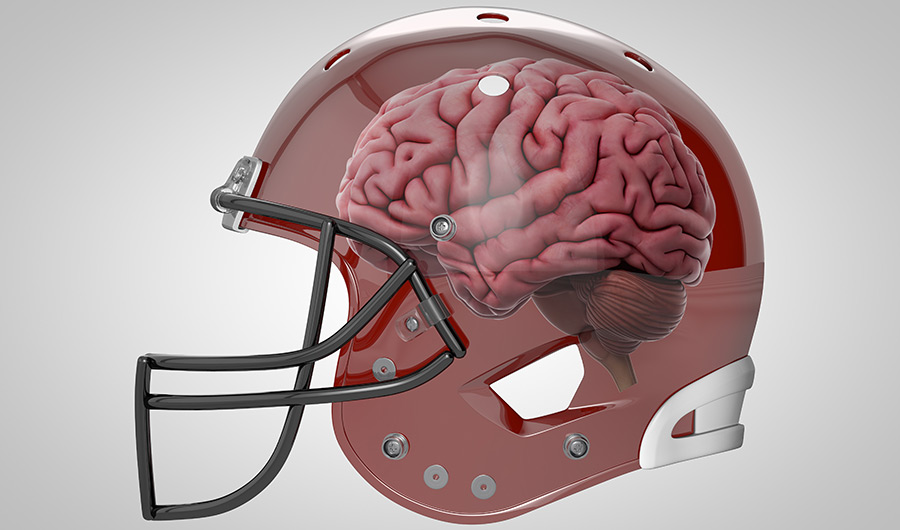
National Down Syndrome Awareness Month 2021
Every year since the 1980s, October has been National Down Syndrome Awareness Month. In the 1960’s and earlier, children with Down Syndrome would be “warehoused” in large, state-run institutions to live out their lives. October was designated as National Down Syndrome Awareness Month around the same time that Down Syndrome stopped being called “Mongolism.” At this point, the attitude and beliefs about Down Syndrome began to change as well. Although the treatment of children and adults with Down Syndrome has drastically changed today, many myths and misconceptions about this genetic condition remain.
Spreading understanding about what Down Syndrome can help stop misconceptions. Down Syndrome is a genetic condition in which a child is born with an extra copy of the 21st chromosome in their DNA. Down Syndrome is the most common type of intellectual disability with around 6,000 Americans born annually with this condition. Currently, there are about 400,000 Americans living with Down Syndrome. There are three types of Down Syndrome with the most common being Trisomy 21 (having the extra 21st chromosome), accounting for around 95% of all Down Syndrome cases. The other two types are Translocation and Mosaicism which together account for the remaining 5%.
The life expectancy of an individual with Down Syndrome can be as high as 60 years old, but often it is shorter. There are common physical and intellectual symptoms associated with this condition, including a flattened facial profile, a shorter neck, a smaller head and facial features, decreased muscle tone (which can cause the often-recognized symptom of protrusion of the tongue), a shorter attention spam, poor judgment, impulsive behavior, slower learning, mild to moderate cognitive delay, and delayed language and speech development. Individuals with Down Syndrome are also at an increased risk for acquiring other medical conditions, these include but are not limited to:
Contrary to some myths about Down Syndrome, parents’ actions are not the cause of the condition. It appears equally in both sexes, and across all races and socioeconomic classes. The risk of a fetus developing Down Syndrome does correlate with a higher age of a mother during pregnancy, but even then, around 80% of all children born with Down Syndrome occur with the mother’s age being under 35 years old.
The goal of National Down Syndrome Awareness Month is to bring awareness about the condition and celebrate the lives, abilities, and accomplishments of individuals with Down Syndrome. Individuals with Down Syndrome and many organizations established to advocate for individuals with the condition make October about showing that people with Down Syndrome are just like everyone else. Most children and adults with Down Syndrome live full and fulfilling lives in which they are contributing members of society. The most important aspect of National Down Syndrome Awareness Month is inclusion. Inclusion is an education-based philosophy with the belief that every person has an inherent right to fully participate in society.
The most important part of advocating for individuals with Down Syndrome is ensuring that schools, educational programs, and vocational programs have proper curriculums and tools to ensure that individuals get the proper development they need. Ensuring proper education and development of individuals with Down Syndrome directly links to leading a fulfilling life and to being successful in a career. Ensuring employment opportunities for individuals with Down Syndrome is a concern as well. Currently, only 57% of all individuals with Down Syndrome who have the capacity to work are at a paid job. Donating to or joining an organization that helps focus on these issues (such as National Association for Down Syndrome, Global Down Syndrome Foundation, and National Down Syndrome Society) can be an important step in helping individuals with Down Syndrome.
REFERENCES:Spreading understanding about what Down Syndrome can help stop misconceptions. Down Syndrome is a genetic condition in which a child is born with an extra copy of the 21st chromosome in their DNA. Down Syndrome is the most common type of intellectual disability with around 6,000 Americans born annually with this condition. Currently, there are about 400,000 Americans living with Down Syndrome. There are three types of Down Syndrome with the most common being Trisomy 21 (having the extra 21st chromosome), accounting for around 95% of all Down Syndrome cases. The other two types are Translocation and Mosaicism which together account for the remaining 5%.
The life expectancy of an individual with Down Syndrome can be as high as 60 years old, but often it is shorter. There are common physical and intellectual symptoms associated with this condition, including a flattened facial profile, a shorter neck, a smaller head and facial features, decreased muscle tone (which can cause the often-recognized symptom of protrusion of the tongue), a shorter attention spam, poor judgment, impulsive behavior, slower learning, mild to moderate cognitive delay, and delayed language and speech development. Individuals with Down Syndrome are also at an increased risk for acquiring other medical conditions, these include but are not limited to:
- Alzheimer’s,
- heart defects,
- respiratory issues,
- leukemia,
- thyroid disorders,
- hearing problems (due to increased risk of ear wax impactions),
- Hirschsprung's disease,
- gastroesophageal reflux disease,
- gingivitis and increased tooth decay,
- and extremely low fertility rates.
Contrary to some myths about Down Syndrome, parents’ actions are not the cause of the condition. It appears equally in both sexes, and across all races and socioeconomic classes. The risk of a fetus developing Down Syndrome does correlate with a higher age of a mother during pregnancy, but even then, around 80% of all children born with Down Syndrome occur with the mother’s age being under 35 years old.
The goal of National Down Syndrome Awareness Month is to bring awareness about the condition and celebrate the lives, abilities, and accomplishments of individuals with Down Syndrome. Individuals with Down Syndrome and many organizations established to advocate for individuals with the condition make October about showing that people with Down Syndrome are just like everyone else. Most children and adults with Down Syndrome live full and fulfilling lives in which they are contributing members of society. The most important aspect of National Down Syndrome Awareness Month is inclusion. Inclusion is an education-based philosophy with the belief that every person has an inherent right to fully participate in society.
The most important part of advocating for individuals with Down Syndrome is ensuring that schools, educational programs, and vocational programs have proper curriculums and tools to ensure that individuals get the proper development they need. Ensuring proper education and development of individuals with Down Syndrome directly links to leading a fulfilling life and to being successful in a career. Ensuring employment opportunities for individuals with Down Syndrome is a concern as well. Currently, only 57% of all individuals with Down Syndrome who have the capacity to work are at a paid job. Donating to or joining an organization that helps focus on these issues (such as National Association for Down Syndrome, Global Down Syndrome Foundation, and National Down Syndrome Society) can be an important step in helping individuals with Down Syndrome.
https://www.specialolympics.org/stories/news/down-syndrome-awareness-month
https://nationaltoday.com/down-syndrome-awareness-month/
https://www.pediatricsoffranklin.com/practice-news/twelve-facts-for-down-syndrome-awareness-month/
https://cadsa.org/ds-awareness-month/october-facts.html
https://www.healthychildren.org/English/health-issues/conditions/developmental-disabilities/Pages/Children-with-Down-Syndrome-Health-Care-Information-for-Families.aspx


